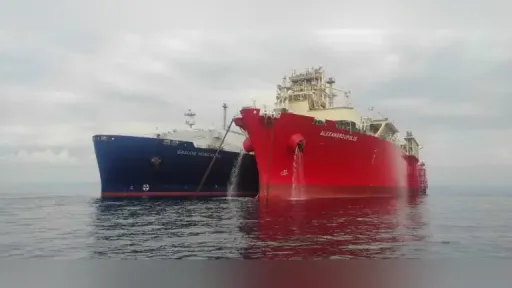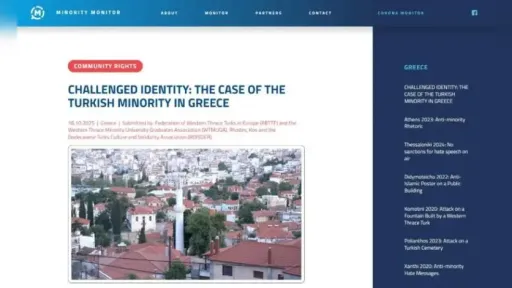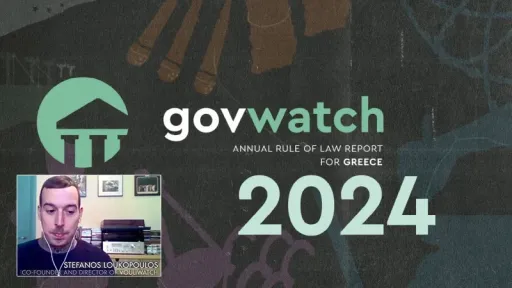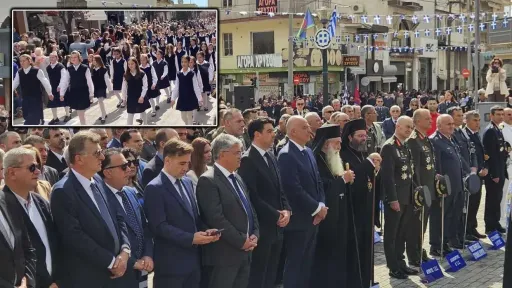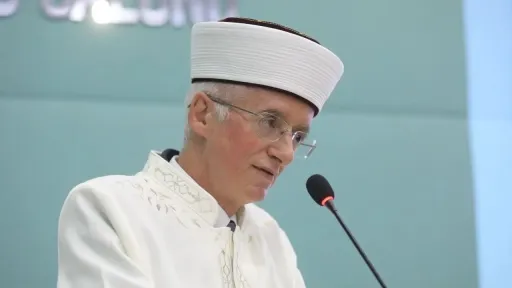Council of Europe Commissioner’s remarks on rule of law, migration, and press freedom

The Council of Europe Commissioner for Human Rights, Michael O'Flaherty, conducted a visit to Greece from February 3 to 7, 2025, focusing on human rights protection in the context of border control operations and the human rights of Roma people.
He expressed his gratitude to the Greek authorities for their cooperation and for engaging in open discussions.
The Commissioner acknowledged the challenges posed by the arrivals of asylum seekers and migrants, given Greece's geographical location and the persistently insufficient levels of European solidarity. Greece is also facing an evolving situation, with new routes to Crete and Rhodes emerging.
In this context, the Commissioner praised the careful approach of the Greek authorities concerning the status of Syrian asylum seekers (see the Commissioner’s statement from December 10, 2024). During his visit, the Commissioner focused on the tragic shipwreck in Pylos in June 2023, where around 750 people lost their lives.
He met with the Ombudsman, who had just completed a report on the actions and omissions of the Coast Guard members in managing the incident on June 13 and 14, 2023, as well as survivors, lawyers, and NGOs supporting them.
The Commissioner, who is in close contact with the Ombudsman, noted the significant findings and encouraged the authorities to take decisive actions to ensure appropriate criminal and disciplinary accountability. Several of his interlocutors drew his attention to reports of ongoing pushbacks, often accompanied by violence, at both land and sea borders.
In light of the recent findings by the European Court of Human Rights regarding strong indications of a systematic "pushback" practice by Greek authorities, the Commissioner urged Greece to adopt a zero-tolerance approach and called for accountability from those responsible.
The Commissioner also emphasized the importance of independent monitoring of human rights in the context of border control operations and encouraged the authorities to ensure that the new mechanisms established under the EU Asylum and Migration Pact are effective.
He recommended following the guidelines of the Committee for the Prevention of Torture of the Council of Europe and the European Union Agency for Fundamental Rights.
Noting the sharp increase in arrivals to Rhodes and Crete, as well as overcrowding in several existing facilities on other islands, the Commissioner called for adequate reception facilities, in accordance with international standards, and prompt transfers, especially of unaccompanied minors, from the islands to the mainland.
The Commissioner also addressed issues concerning the human rights of Roma people.
Based on a mission he conducted in June 2024 in Thessaloniki, the Commissioner paid particular attention to issues of adequate housing and police violence.
The Commissioner welcomed the adoption of a comprehensive National Strategy and Action Plan for the Social Integration of Roma and the clear commitment to its implementation, as well as the efforts of inter-ministerial coordination led by the Ministry of Social Cohesion and Family Affairs.
However, he noted the need to overcome barriers to local implementation of the strategy and emphasized the need to strengthen the participation of Roma community members in the design, implementation, and monitoring of relevant measures.
During his visit to a settlement in Chalandri, the Commissioner observed that, despite the efforts of its residents and the municipality, the housing conditions remain deplorable, and Roma communities living there face persistent discrimination in their daily lives.
As he stated in a video recorded during his visit to Chalandri, "We all, across Europe, need to wake up to the situation in which the Roma find themselves. We must work together with them to honor and respect their human rights."
In general, the Commissioner paid particular attention to the deteriorating environment for legal professionals and civil society organizations supporting vulnerable individuals, as well as for investigative journalists.
He reminded that it is important for strong states based on the rule of law to value and support the role and work of civil society and the media.
He also observed that prosecutorial services should ensure that effective investigations are carried out in accordance with the case law of the European Court of Human Rights.
The Commissioner’s remarks are awaited.
During his visit to Greece, the Commissioner met with the Minister of Migration and Asylum, Nikos Panagiotopoulos, the Minister of Shipping and Island Policy, Christos Stylianidis, the Minister of Social Cohesion and Family Policy, Sofia Zacharaki, the Deputy Minister of Foreign Affairs, Alexandra Papadopoulou, and the Greek delegation to the High Parliamentary Council of the Supreme Court.
EFSYN
